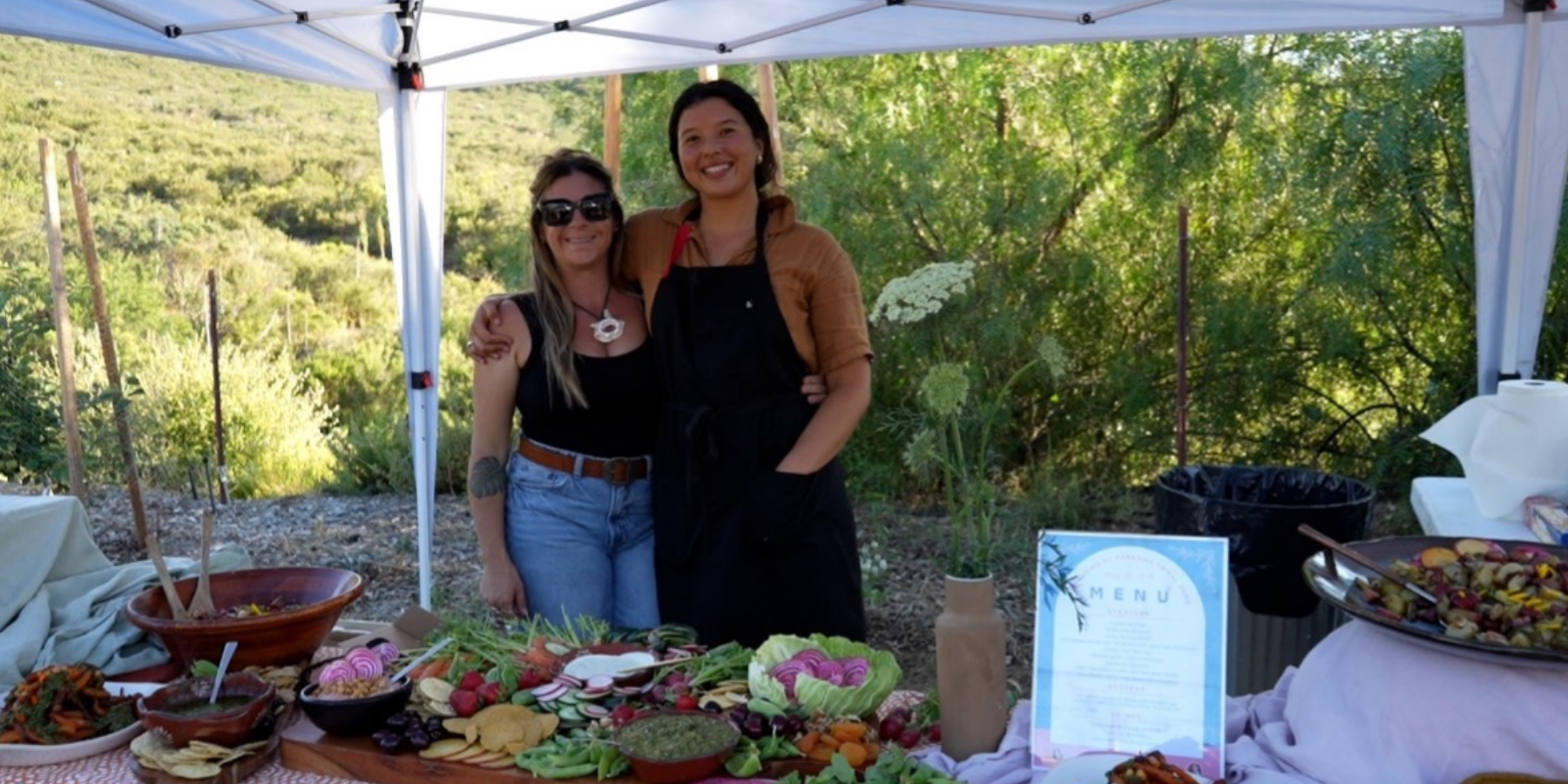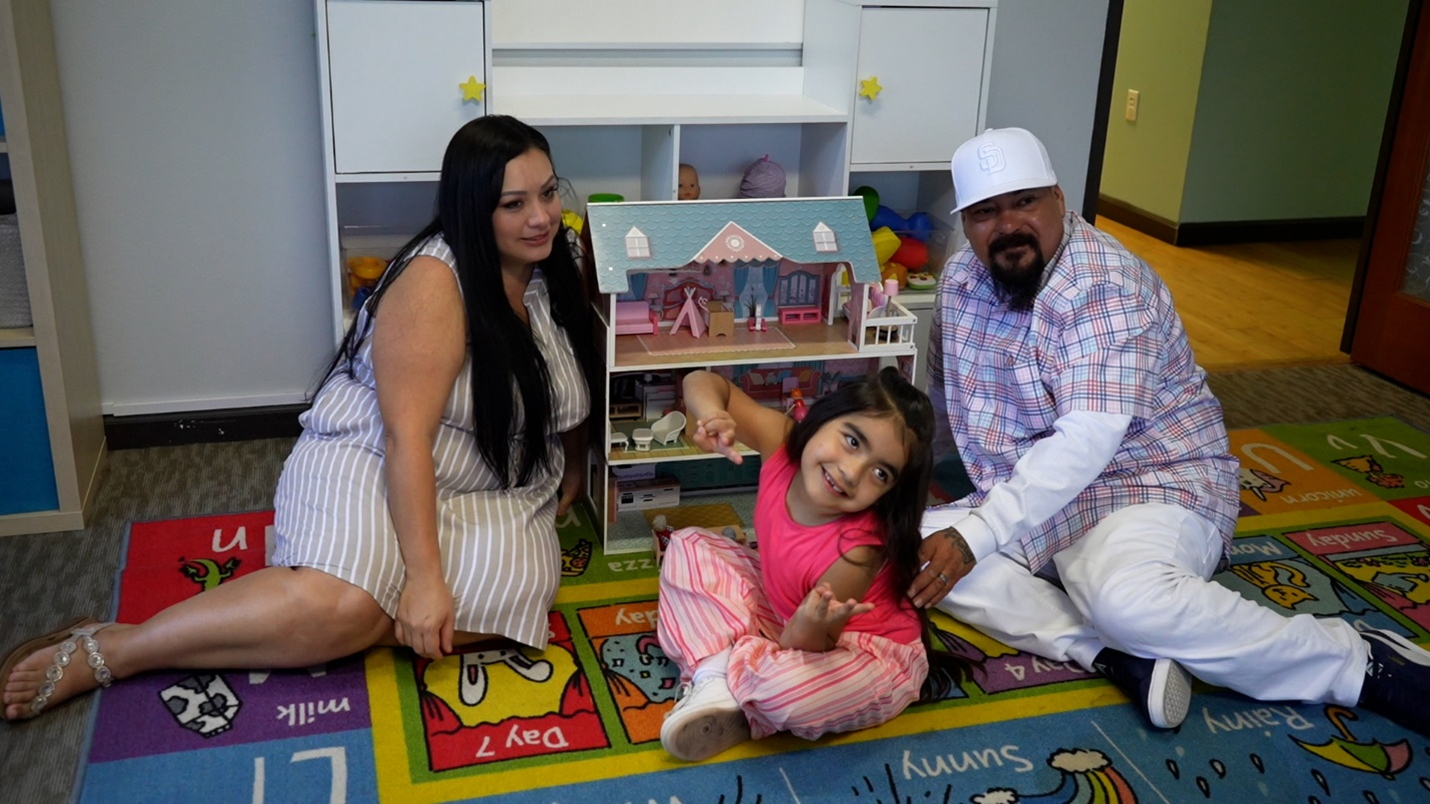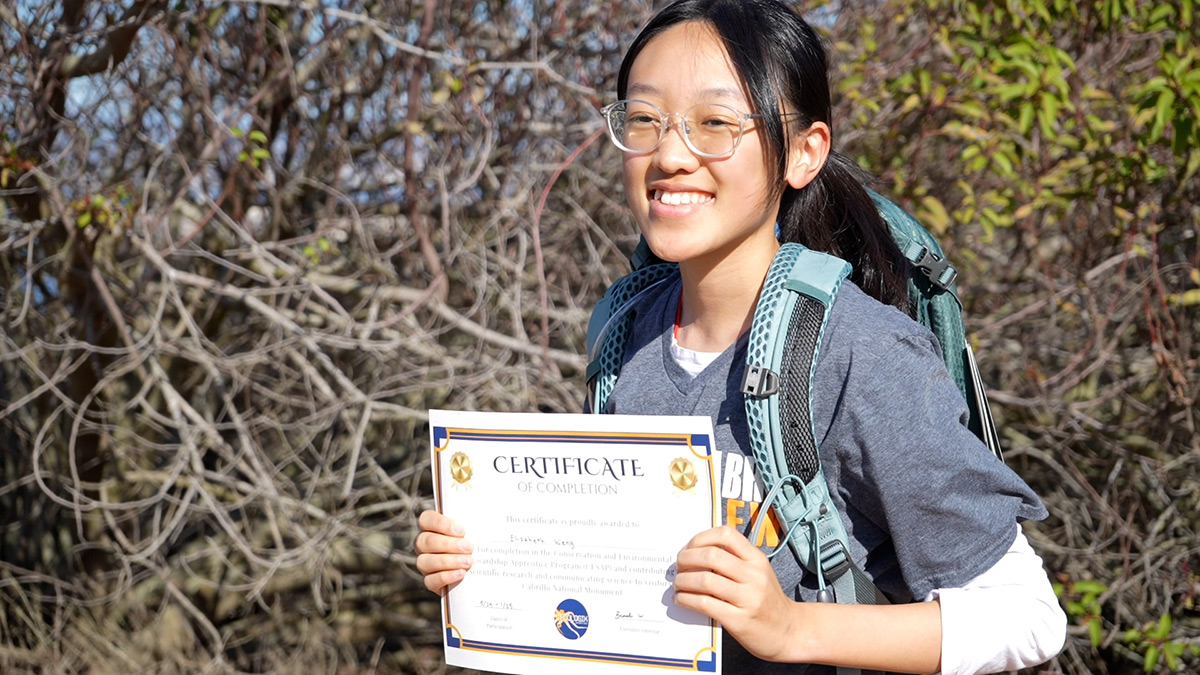It’s golden hour at Paradise Tribal Farm in Valley Center. Under the warm glow of the sunset, dozens of guests fill the space – laughing, mingling and indulging in decadent dishes crafted by Chefs Lily Hamlin and Maya Harrison.
The event, hosted by San Diego Women’s Foundation (SDWF), is a celebration of collaboration. Earlier this year, SDWF, San Diego Foundation (SDF) and the Avila Fund joined forces to grant $60,000 to organizations supporting local tribal communities in building healthy, sustainable and culturally relevant food systems.
Four organizations, including Climate Science Alliance and Indigenous Regeneration, were among the grantees that each received $15,000.
Attendees at the Paradise Tribal Farms event gain insight into regenerative agriculture practices, local food sovereignty projects and the collaborative impact these organizations are making in their communities.
Strengthening Tribal Food Systems
San Diego County boasts the largest number of tribal governments and reservations in the United States, with 18 tribal reservations and four tribal nations – the Kumeyaay, Luiseño, Cupeño and Cahuilla – represented across the region.
According to Candid, less than 1% of philanthropic funds go to Indigenous-led organizations, a statistic that SDF, SDWF, and the Avila Fund aim to change through their collaborative grantmaking efforts, thereby ensuring greater support and resources for tribal communities.
“There’s this incredible community that we’ve never been able to reach with our grants,” says Stephanie Cook, SDWF Executive Director. “Hearing that it’s hard for them to be competitive in larger grant cycles – this is a good fit for collaboration.”
Indigenous Regeneration: Cultivating Healthy Tribal Lands
Among the organizations doing this work is Indigenous Regeneration, a nonprofit focused on regenerative agriculture, land relationships, cultural language revitalization and more.
“San Diego is a diverse region for food and food sovereignty,” says Lacey Cannon, the organization’s Founder and Executive Director. “We have to be looking at incorporating those Native foods into regenerative agriculture practices.”
Indigenous Regeneration has a six-acre tribal farm school where apprentices learn about traditional ethnobotany and how to grow food. This collaborative grant from SDWF, SDF and Avila Fund helps support this work.
“We really appreciate them funding our tribal farm apprenticeship programs, encouraging food sovereignty in our communities and to see more of our own foods on the reservations,” Cannon shares.
The Power of Collaboration
The evening at Paradise Tribal Farms not only celebrates impactful grantmaking but also underscores the power of collective efforts in fostering resilient and healthy Native communities.
“I love collaborating. I think it’s an opportunity to learn from others,” says Ellen Waddell, President and Chief Executive Officer of Avila Fund. “It’s an opportunity to leverage philanthropic dollars for us to pull together funds and, therefore, hopefully make a larger impact.”
This funding cycle is an initiative of the SDWF Collaboration Committee, a dedicated group within the organization that aims to amplify impact through partnerships with other philanthropic funders.
“This is our fourth cycle,” says Cindi Hill, Vice-Chair of the SDWF Collaboration Committee. “Everyone, without the other partner, would not have been anywhere near as supportive and expansive as when we’re all together.”






